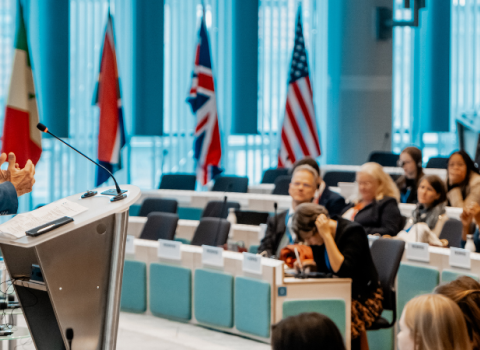Stockholm University is the first university in Sweden to have an overall policy for open science, following a decision by the University President Astrid Söderbergh Widding. The policy describes the university's overall goal in the transition to an open scientific system.
The latest research bill for Sweden makes clear that the target picture for the Swedish universities is to have converted to an open science system by 2026 at the latest, which put demands on both the universities and the researchers themselves.
– Having a collected policy for open science with an associated plan clearly marks that Stockholm University is working strategically with the implementation of open science. The policy gives direction to the open science work and supports further development, says Wilhelm Widmark, Senior Advisor to the President with operational responsibility for Open Science at the university.
In line with the National Roadmap
The policy is also in line with The Association of Swedish Higher Education Institutions’ (SUHF) recommendations and National Roadmap for open science. One of the authors behind the policy is Sabina Anderberg, senior advisor at Stockholm University Library and member of the national task group for research data in SUHF.
– It is important to have a specific policy that makes Stockholm University's strategic directions for open science visible. The policy emphasizes and clarifies the responsibility that the university and the researchers need to take together to be part of the transition to an open scientific system, says Sabina Anderberg.
The open science policy came into force on 22 September and replaces the previous Research Data Policy and an older open access policy.
New agreement to reform the merit system
Stockholm University, via University President Astrid Söderbergh Widding, has also signed the Agreement on Reforming Research Assessment, which intends to change the merit system for researchers.
The goal is to reform assessment practices in research, by allowing researchers to qualify on other merits than, for example, by publishing in prestigious scientific journals. The European University Association (EUA), Science Europe and the European Commission are behind the agreement, and over 350 organizations from 40 countries have been involved in the process.
What is open science?
Open science means that science is transparent, accessible and reusable for research, innovation and development.
The FAIR principles (Findable, Accessible, Interoperable, Reusable) as key words for good management of research information (scientific publications, research data and other research results) mean that it must be as searchable, accessible, interoperable and reusable as possible.
Correct documentation and secure information management throughout the research process form the basis of good research and are part of every researcher's everyday life. FAIR does not automatically mean open access. As open as possible and as restricted as necessary, is the practice throughout the research process.
This article was first published on 8 October by Stockholm University.





 A unique international forum for public research organisations and companies to connect their external engagement with strategic interests around their R&D system.
A unique international forum for public research organisations and companies to connect their external engagement with strategic interests around their R&D system.